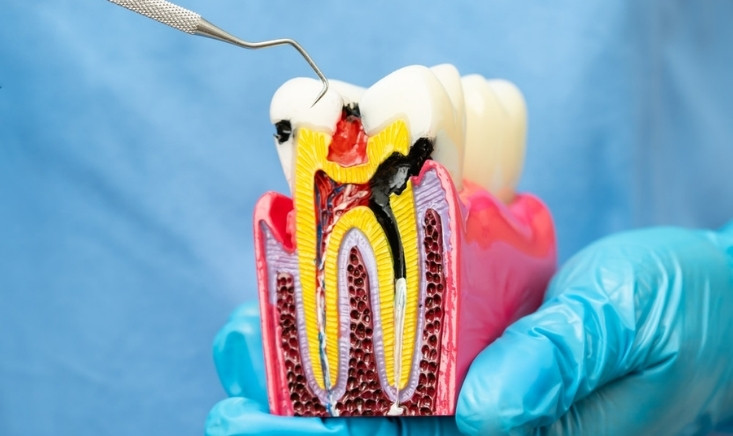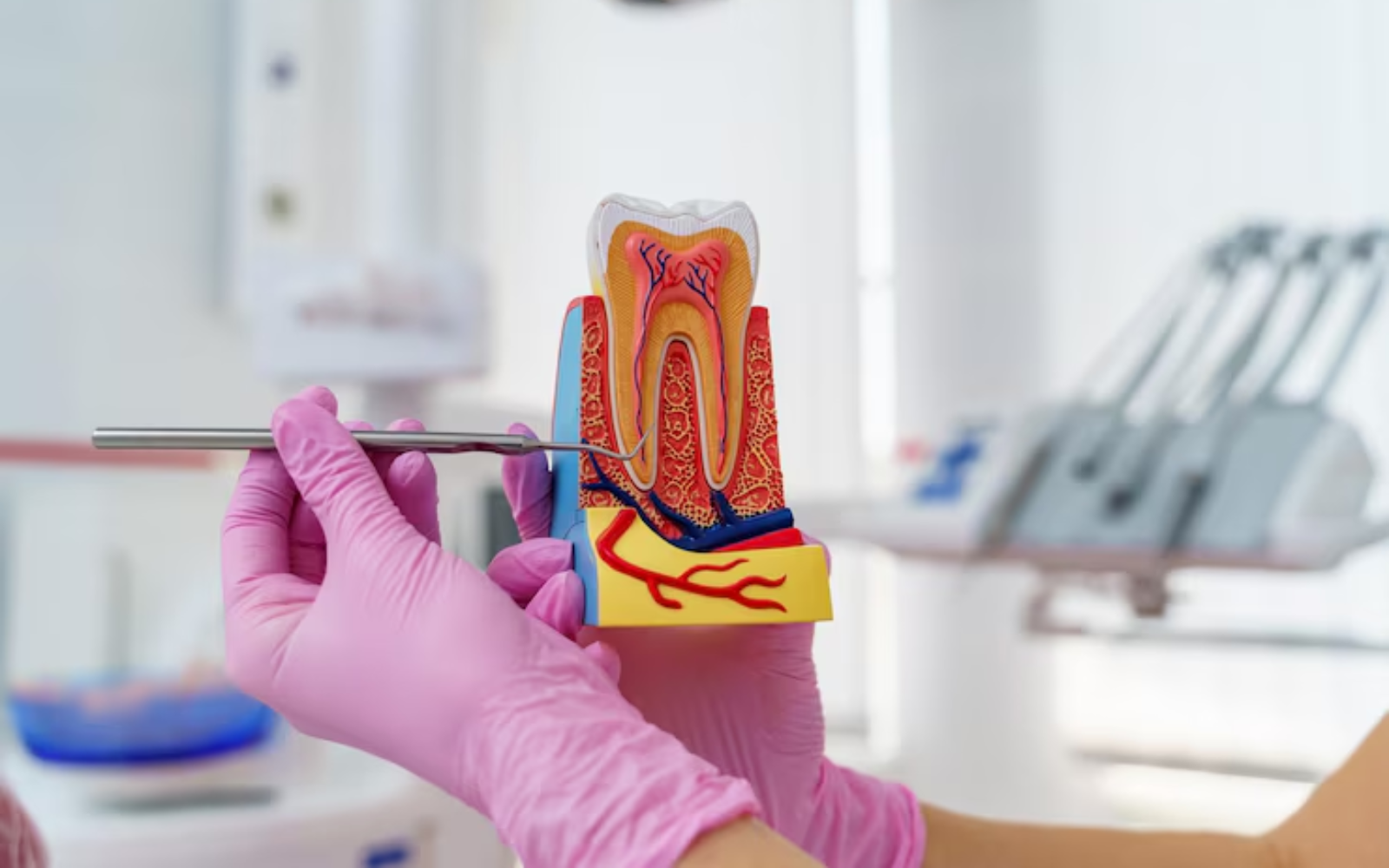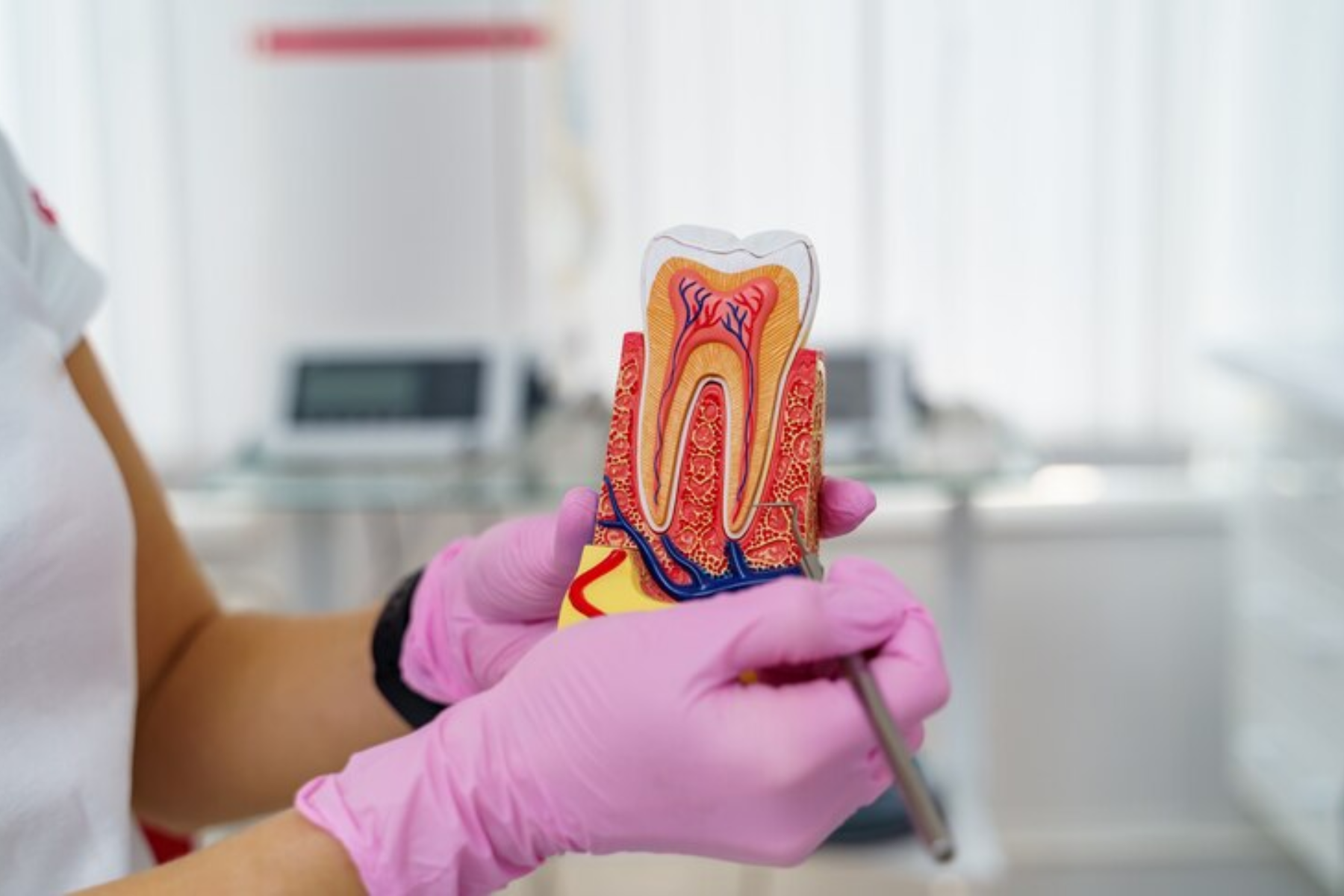7 Signs You Might Need A Root Canal

Dental infections are common, and there are ways to prevent them from spreading. But if the infection seeps deep into the tooth pulp, the innermost layer of your teeth, you may require root canal treatment. Recognize the signs you might need the procedure.
Millions of root canals are being performed successfully in the USA. See a general dentist, and they may refer you to a specialist. Stay until the end, as the blog will be interesting and filled with insights into the procedure.
What Happens During A Root Canal?
Root canal treatment involves a specific procedure. Here is a breakdown of it:
- A dentist extracts the decay and germs from the tooth pulp and nerve by drilling a hole in the tooth.
- After germs are removed, they disinfect the affected region with the help of antibiotics.
- Thereafter, they fill the vacant roots.
- Ultimately, they seal the space to prevent any further contamination by germs.
Before extracting the decay, the dentist offering root canal treatment in Tustin uses dental X-rays to assess the severity of the tooth decay and infection. They use an anesthetic to numb the affected area before initiating their procedure.
Understanding The Seven Signs You Need A Root Canal
Here are the seven most pronounced signs you need a root canal procedure.
1. Persistent Pain
One of the most common signs of degradation, indicating the need for a root canal treatment, is persistent pain noted by dentists. The pain can be:
- Felt during the daytime.
- Recurring over time.
- Felt after eating sugary or sour food.
Moreover, the pain may spread from the affected tooth to other areas, such as the jaw and face.
2. Sensitive To Hot And Cold
Are you experiencing sensitivity to extremely hot and cold foods for quite some time? Do you feel excruciating pain after eating ice cream? If the pain persists for an extended period, the situation is alarming. Visiting a dentist would be your next step. Don’t linger on it.
3. Bleeding Gums
Another indication of the need for a root canal treatment is bleeding gums. If you experience bleeding while brushing and flossing, you have a high chance of a root canal infection. Go for immediate treatment. When visiting your dentist, they may ask for a root canal treatment.
4. Tooth Discoloration
If you have an infection inside the tooth pulp, it may result in discoloration. In such a situation, the tooth appears grayish. The tooth pulp can die if there is a lack of blood flow, which causes discoloration.
Even trauma to the tooth or internal tissue damage can bring about a change in the tooth color. In such cases, your dentist may recommend a root canal.
5. Tenderness Around The Tooth
Another common sign that you must visit a dentist for root canal therapy is tenderness around the infected root. The condition may have developed due to an abscess that has infected the tooth pulp.
6. Swollen Gums
The dentist may examine your overall oral health. In cases of swelling with no pain, doctors may determine the problem and suggest root canal therapy. Acetic waste produced by dead pulp in your tooth may result in swollen gums.
7. Cracked Tooth
If you have a chipped or cracked tooth after an accident, it can lead to bacterial development. Bacteria may seep deep into the root and tooth pulp, causing severe infection.
The injury can damage your tooth even if it does not crack or chip. In such a scenario, the dentist may recommend root canal therapy.
The signs indicate that you may need a root canal, but do not worry. See a reliable general dentist who has experience offering such a procedure.
Their involvement will pave the pathway to recovery. Do not wait to aggravate situations. Our dentist provides high-quality root canal procedures, utilizing the latest equipment to alleviate your discomfort.



